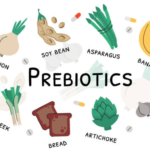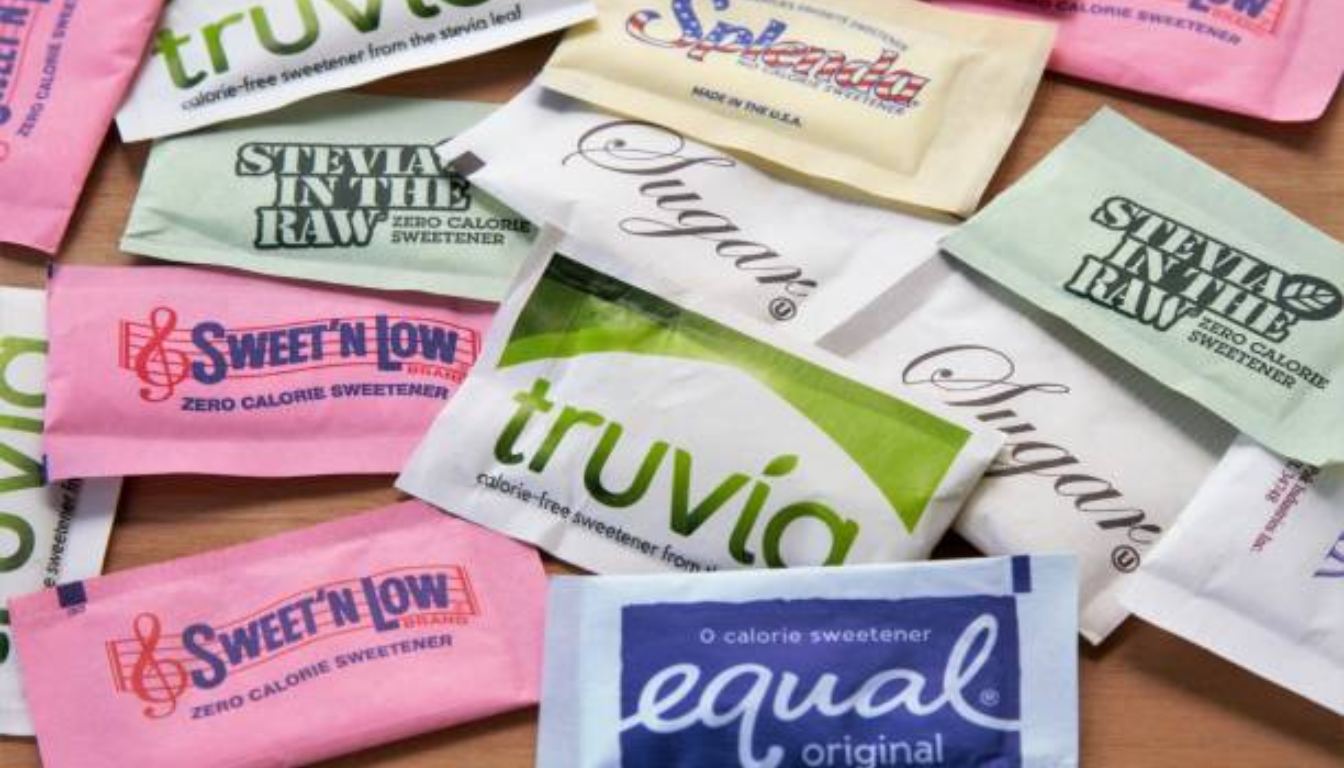
Fermented Foods: Are They Key to Better Digestion?
Have you ever felt uneasy after eating, with your stomach seeming to wrestle instead of digesting? I know that feeling. Discovering how fermented foods improve gut health changed everything for me. It was like discovering a treasure of digestive health secrets from traditions around the world.
Fermented foods transform our gut microbiome, home to trillions of microorganisms. They introduce probiotics that boost microbiome diversity, strengthening both our digestive health and immune system. Foods like yogurt, kimchi, and kefir offer more than taste; they enhance nutrient uptake, fight harmful microorganisms, and aid digestion.
A study by Stanford researchers demonstrated the power of fermented foods for gut health. Over 10 weeks, these foods increased microbiome diversity and enhanced immune responses. Yogurt, kefir, kimchi, and kombucha not only diversified gut bacteria but also lowered inflammation levels.
Key Takeaways
- The Stanford study shows that fermented foods enhance gut health by boosting the microbiome’s diversity.
- They contribute to improved digestive health, better nutrient absorption, and a more robust immune response.
- Participants consuming fermented foods showed decreased levels of inflammation and enhanced microbial diversity.
- Including yogurt, kefir, kimchi, and kombucha in your diet can positively impact your overall health.
- The benefits of fermented foods versus a high-fiber diet reveal significant advantages for the gut microbiome.
The History of Fermented Foods and Their Impact on Gut Health
Fermented foods have been around for thousands of years and are found in traditions worldwide. Fermentation was vital for keeping food safe to eat and improving its nutritional value. It has also become a core part of many cultural diets.
Ancient Practices of Fermentation
People have made fermented drinks from fruit, honey, and rice in China dating back to 7000-6600 BCE. By 6000 BCE, residents in Georgia were making wine. Around 3000 BCE, those in Babylon were fermenting beverages. Fermenting dairy began around 10,000 BCE with milk from camels, goats, sheep, and cattle. This illustrates how vital traditional fermentation was globally.
Cultural Fermentation Techniques
Evolution of Fermentation Technology
In 1856, Louis Pasteur identified yeast’s role in fermentation, changing science forever. Early in the 20th century, Elie Metchnikoff found that fermented milk could help people live longer. He linked this to the beneficial microbes in these foods. Over the last 40 years, studies have shown that these beneficial bacteria can aid digestion and detoxification.
Today, we still value the ancient art of fermentation. Modern science helps us understand its benefits even more. As technology has advanced, we’ve been able to keep the important health benefits of fermented foods.
| Year | Event |
|---|---|
| 7000-6600 BCE | Evidence of fermented alcoholic beverages in Neolithic China |
| 6000 BCE | Wine-making in Georgia |
| 3000 BCE | Fermentation of beverages in Babylon |
| 10,000 BCE | Dairy fermentation begins with camel, goat, sheep, and cattle milk |
| 1856 | Louis Pasteur connects yeast to fermentation |
| 1910 | Elie Metchnikoff associates Bulgarian longevity with fermented milk |
| 1935 | Leo F. Rettger discovers Lactobacillus acidophilus survives in the human gut. |
Understanding fermentation’s deep history lets us see its roles in food safety and culture. Over the centuries, it has transformed how we eat, making the tradition of fermentation much more than just a way to preserve food.
Top Benefits of Fermented Foods for Gut Health
Fermented foods are excellent for gut health and offer numerous benefits to overall well-being. First and foremost, these foods significantly enhance our nutrition by increasing the availability of essential vitamins and minerals. Additionally, they promote the growth of beneficial gut bacteria, which are crucial for maintaining a balanced and healthy microbiome.
Moreover, fermented foods introduce a variety of beneficial microorganisms into our digestive system. These probiotics support digestion and strengthen our immune system, helping our bodies fend off harmful pathogens. Regularly consuming fermented foods can lead to improved digestion, better nutrient absorption, and a more robust immune defense.
Now, let’s explore their benefits in more detail to understand how incorporating these foods into your diet can profoundly impact your health.
Nutritional Value of Fermented Foods
Fermentation changes foods, creating compounds that are good for our diet. For example, fermented dairy, like yogurt, helps reduce blood sugar. It may also cut the risk of metabolic syndrome and type 2 diabetes. Plus, foods like miso and natto can lower high blood pressure. They are filled with bacteria and yeast that are good for us.
Promotion of Gut Microbes
Fermented foods boost the growth of helpful gut flora, which is key for a healthy gut. By making our gut bacteria diverse, they lower the chance of metabolic disorders. Studies show a healthy gut biome can fight obesity. For instance, eating kimchi might help pre-diabetic people control insulin, blood pressure, and weight.
Addition of Beneficial Microorganisms
Fermented foods bring good microorganisms into our bodies. Foods like kefir can reduce inflammation and help bones get stronger over six months. They can also enhance our mental state by boosting serotonin, which may lower anxiety and depression and improve our thinking skills.
| Key Benefits | Food Examples |
|---|---|
| Reduced Blood Sugar & Diabetes Risk | Yogurt, Kimchi |
| Lower Blood Pressure | Miso, Natto, Kefir |
| Improved Bone Density | Kefir, Natto |
| Enhanced Mental Well-being | Kimchi, Sauerkraut |
| Better Oral Health | Fermented Vegetables |
How Fermented Foods Promote Gut Microbes
Gut health probiotics keep our microbiome balanced. By adding probiotics from fermented foods or supplements, we improve our digestion. These good bacteria balance our gut and boost our immune defense.
Gut Microbiome Diversity Boosted by Fermented Foods
A varied microbiome is key for our digestion. Moreover, probiotics add good bacteria to our gut, making it a better place for them. For instance, Ross et al. (2002) showed how fermentation and science help us understand probiotics. Similarly, Tamang et al. (2005) found that lactic acid from fermented veggies in the Eastern Himalayas boosts gut health.
In addition, probiotic supplements offer these helpful microbes. They not only add good bacteria to our gut but also fight the bad ones.
Immune System Support
Probiotics play a vital role in helping our immune system stay strong. In particular, they support our body’s natural defenses by promoting beneficial gut bacteria growth. Furthermore, the process of fermentation not only enhances food safety but also boosts our bodily defenses, as highlighted by Gaggia et al. (2011).
These beneficial bacteria thrive, especially when stressed or sick, preparing our immune system to combat potential threats. Moreover, the WHO and FAO emphasize the importance of adequate probiotics to maintain overall health.
For example, eating foods like kefir, which is rich in natural probiotics, aligns with healthy traditions that have been practiced for centuries. Yüksekdag et al. (2004) further supported this, whose study demonstrated the positive impact of such foods on gut health.
Additionally, regularly incorporating probiotic-rich foods and supplements into your diet promotes a healthy gut and strengthens your immune system. Ultimately, understanding the benefits of gut health probiotics empowers us to make smarter health choices that contribute to our long-term well-being.
| Study | Findings |
|---|---|
| Chilton et al. (2015) | Global recognition of fermented foods in dietary guides. |
| Ross et al. (2002) | Importance of probiotic preservation and fermentation practices. |
| Gaggia et al. (2011) | The link between protective cultures and gut health. |
| Tamang et al. (2005) | Benefits of lactic acid bacteria from traditionally fermented vegetables. |
| Yüksekdag et al. (2004) | Probiotic properties of Turkish kefirs. |
| Aragon-Alegro et al. (2007) | Innovation in probiotic incorporation via chocolate mousse. |
| De Roos and Katan | Potential role of probiotics in managing gastrointestinal issues. |
Top Fermented Foods for Improved Gut Health
Exploring the top fermented foods for gut health reveals many exciting options. Indeed, these foods offer a variety of benefits that are essential for maintaining a healthy digestive system. To begin with, we’ll examine some of the best choices and discuss their specific health benefits. Additionally, we’ll consider how incorporating these foods into your diet can positively impact your overall well-being.

Yogurt and Kefir
Yogurt and kefir are important dairy-based fermented foods. Kefir’s benefits include boosting gut microbiome variety and reducing inflammation. Kefir has more types of good bacteria and yeast than yogurt. This helps improve gut health and overall wellness. Yogurt’s live cultures are good for digestion because they can go through the stomach to the gut.
Kimchi
Kimchi is full of good bacteria, like Lactobacilli, which are great for the gut. With its rich probiotic content, kimchi probiotics are a tasty choice for Korean food. Studies have shown that kimchi also has fiber and antioxidants that are good for health.
Tempeh
Tempeh is a top choice among plant-based health foods. Specifically, with 34g of protein and 6g of fiber per cup, tempeh is particularly beneficial for gut health. Furthermore, made from fermented soybeans, tempeh also supports the brain, lungs, heart, liver, and bones. As a result, it’s a great option for those following plant-based diets.
Kombucha
Kombucha is a fizzy fermented tea that’s excellent for health. In addition, its advantages include a wealth of antioxidants and beneficial bacteria. However, while we need more human studies to confirm these benefits, early research indicates that it may improve gut health and lower cholesterol. Moreover, kombucha is a valuable option for diversifying your fermented food intake.
We’ll now compare the nutritional benefits of these fermented foods:
| Fermented Food | Main Benefits | Key Nutrients (per cup) |
|---|---|---|
| Yogurt | Survives GI tract, promotes gut health | Protein, Calcium, Probiotics (Live Cultures) |
| Kefir | Enhances microbial diversity, lowers inflammation | Protein, Probiotics, B Vitamins |
| Kimchi | Rich in probiotics and antioxidants, it supports gut health | Fiber, Vitamins A & C, Probiotics |
| Tempeh | High in protein and fiber, it supports various health aspects | Protein, Fiber, Calcium, Magnesium |
| Kombucha | Rich in antioxidants and beneficial bacteria | Antioxidants, Probiotics |
Scientific Research on Fermented Foods and Gut Health
Recent studies have extensively explored the significant effects of fermented foods on our gut health. Specifically, they have examined aspects like inflammation and the diversity of microbes in the gut. Moreover, many studies have revealed intriguing findings.
Stanford Study Findings
For instance, a study from Stanford, as mentioned in fermentation science, uncovered some crucial insights. It found that individuals consuming approximately six servings of fermented foods daily experienced a notable reduction in inflammation markers. Consequently, this suggests that fermented foods significantly enhance gut diversity.
Impact on Inflammatory Markers
Furthermore, including fermented foods in our meals is highly beneficial. Not only do they help by reducing inflammation, but the fermentation process also lowers pH levels, inhibiting harmful microbes’ growth. As a result, this contributes to improved overall health.
Gut Microbiome Diversity
In addition, maintaining a diverse gut microbiome is essential for staying healthy. Research indicates that consuming fermented foods like yogurt and kimchi positively transforms our gut microbiome. Consequently, this reduces the risk of diseases like diabetes and heart problems.
Moreover, there has been a significant increase in people searching for “gut health” online. This trend indicates that more individuals are interested in caring for their gut health. With continued research, the benefits of fermented foods are becoming increasingly apparent. Not only do they provide essential nutrition, but they also help us maintain long-term wellness.
Practical Tips for Incorporating Fermented Foods into Your Diet
Fermented foods have a long history, dating back to 7000 BC in China. They provide beneficial bacteria to your gut, thereby boosting your health. However, selecting these foods wisely ensures they fit into your diet without overconsumption.
Choosing the Right Fermented Foods
When choosing fermented foods, it’s essential to consider your preferences and dietary needs. For example, yogurt and kefir are rich in probiotics and come in various forms to suit different diets. Additionally, kimchi and tempeh offer extra health benefits, such as improved digestion and immune support. Therefore, starting slowly is advisable to allow your body to adjust and avoid discomfort.
DIY Fermentation at Home
Moreover, making fermented foods at home is both easy and cost-effective. You can prepare sauerkraut or kombucha, customizing them to your taste. This do-it-yourself method ensures freshness and gives you control over the ingredients.
Balancing Fermented Foods with Other Dietary Needs
Finally, while fermented foods are rich in probiotics, prebiotics, and nutrients, balancing them with fresh vegetables, whole grains, and proteins is equally important. This approach helps prevent overreliance on fermented foods alone. Thus, listening to your body and adjusting your diet to maintain a balanced intake is essential for overall health.
FAQ
Q: What role do fermented foods play in gut health?
A: Fermented foods are vital for keeping your gut healthy. They add probiotics, boosting the diversity of your microbiome and improving digestion. This means you get better at absorbing nutrients, fighting sickness, and digesting food smoothly.
Q: How have ancient practices influenced modern fermentation techniques?
A: Ancient cultures knew the power of fermentation to keep food safe and tasty. They devised many of the fermentation methods we still use. With modern technology, we’ve made these processes even better, keeping the good stuff from tradition.
Q: What are the specific benefits of fermented foods for gut health?
A: Fermented foods are great for your gut. They increase nutritional value and help good gut bugs thrive. They also add helpful microbes that make your digestive system friendlier.
Q: How do probiotics from fermented foods support the gut microbiome?
A: Probiotics in fermented food make your microbiome more varied and support your immune system. They fight off bad bacteria, increase the nutritional value of beneficial ones, help with digestion, and keep your gut healthy.
Q: Which fermented foods are best for improving gut health?
A: For a healthier gut, try yogurt and kefir if you’re okay with dairy. Tempeh is a great plant-based choice. Kimchi gives you tasty probiotics, and kombucha is a fermented drink that’s also good for your gut.
Q: What does scientific research say about the impact of fermented foods on gut health?
A: Studies like the one from Stanford confirm that fermented foods boost gut microbiome diversity. This can better your immune response and lower inflammation. The research shows that eating more fermented foods makes your microbiome healthier, improving your overall well-being.
Q: How can I incorporate fermented foods into my diet effectively?
A: Start by picking fermented foods that fit your diet and any food sensitivities. You might also try fermenting at home for customized, probiotic-packed treats. Remember, balance is important. Make sure these foods are part of a diet full of varied nutrients.
Source Links
Scientific Research on Fermented Foods
- Fermented-food diet increases microbiome diversity, decreases inflammatory proteins, study finds
- Fermented Foods, Health and the Gut Microbiome
- Fermented Foods as Probiotics: A Review
- Fermented foods, their microbiome and its potential in boosting human health
- Frontiers | Fermented foods: a perspective on their role in delivering biotics
Health Benefits and Nutritional Value of Fermented Foods
- Unlocking the power of fermented foods for gut health
- The Health Benefits of Fermented Vegetables : USDA ARS
- Slideshow: Health Benefits of Fermented Foods
- Fact vs. Fiction : Fermented Foods and Gut Health – Practical Gastro
- Fermented Foods, Probiotics and Their Health Benefits
Top Fermented Foods to Include in Your Diet
- 8 Fermented Foods You Should Be Eating For Good Gut Health
- 8 Fermented Foods and Drinks You Should Try, from Kefir to Kimchi
- 7 Must-Eat Fermented Foods for a Healthy Gut
- Top 12 healthiest fermented foods
Cultural and Historical Insights on Fermentation
- Traditional Fermented Foods and Beverages from around the World and Their Health Benefits
- A Brief History of Fermented Foods













































Post Comment